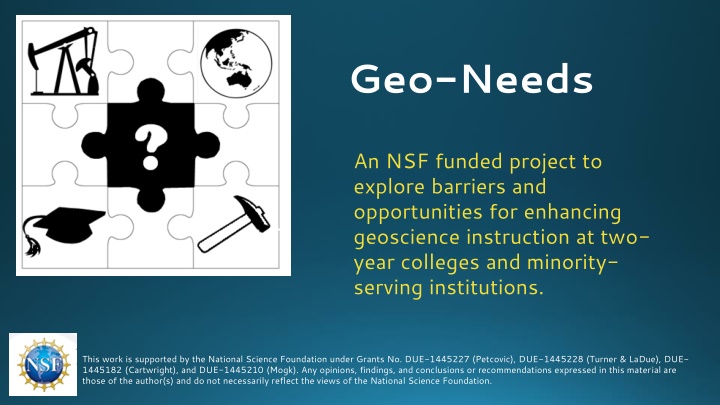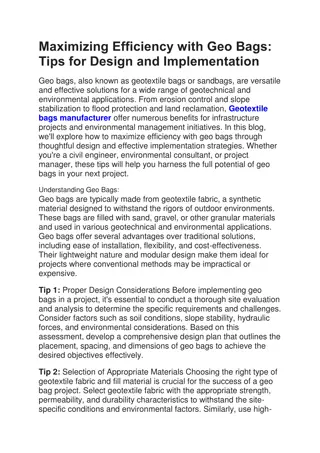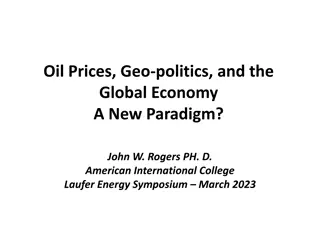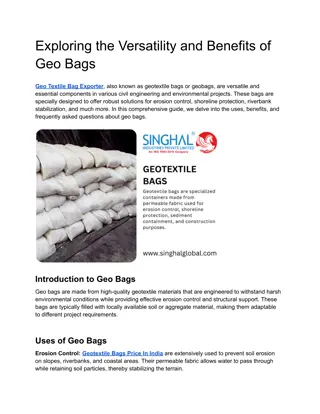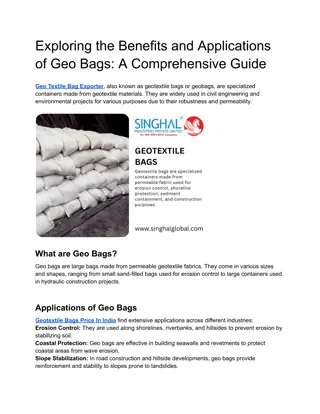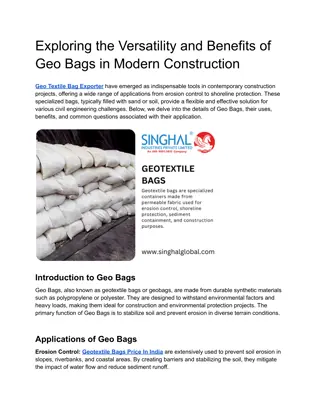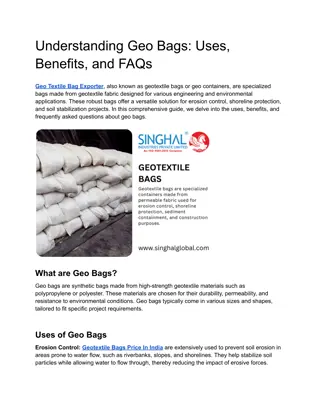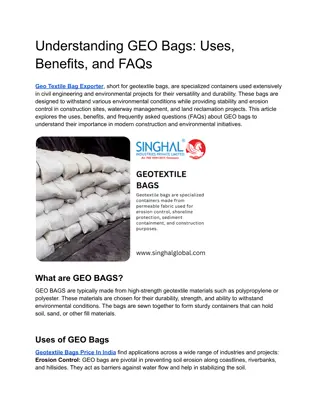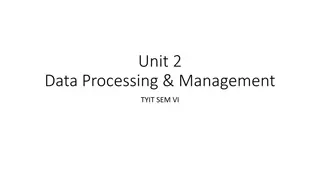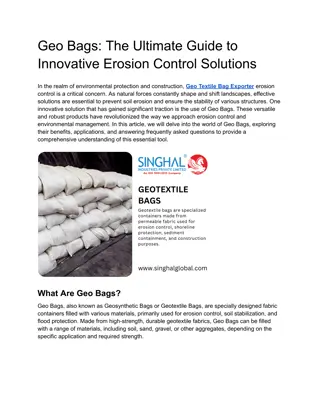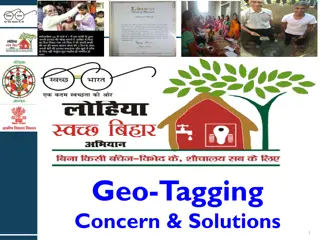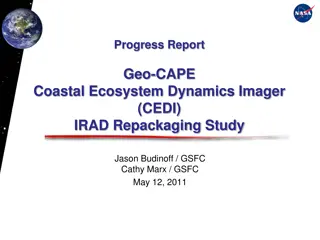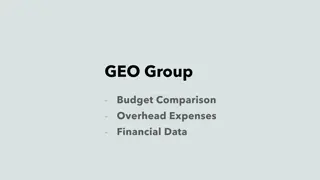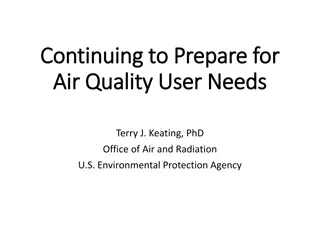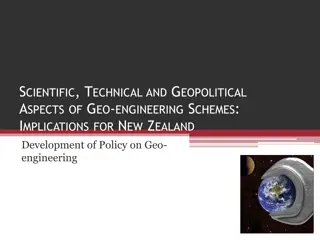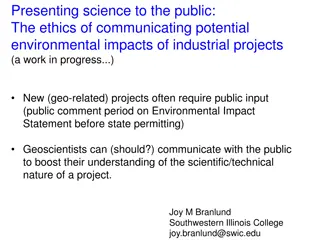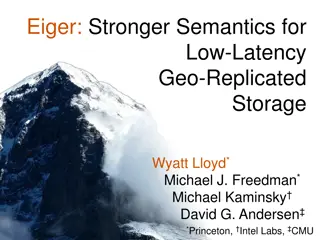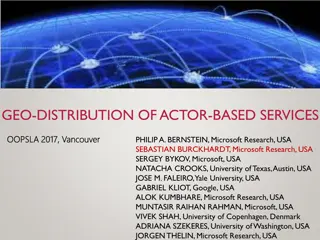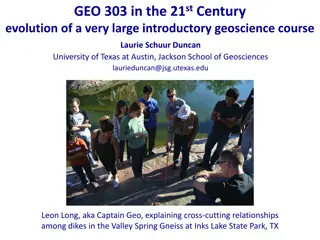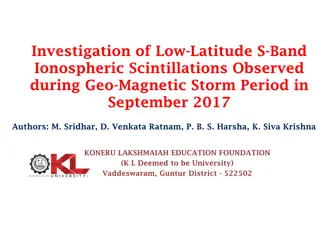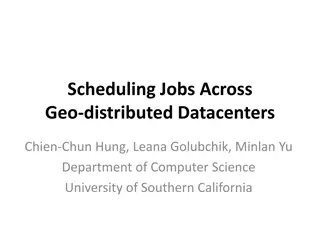Geo-Needs Project Opportunities
This NSF-funded project aims to enhance geoscience instruction at two-year colleges and minority-serving institutions by identifying barriers, clarifying opportunities, and exploring ideal resources and support models. The project includes sessions on current status, gaps, ideal models, and team norms.
Download Presentation

Please find below an Image/Link to download the presentation.
The content on the website is provided AS IS for your information and personal use only. It may not be sold, licensed, or shared on other websites without obtaining consent from the author.If you encounter any issues during the download, it is possible that the publisher has removed the file from their server.
You are allowed to download the files provided on this website for personal or commercial use, subject to the condition that they are used lawfully. All files are the property of their respective owners.
The content on the website is provided AS IS for your information and personal use only. It may not be sold, licensed, or shared on other websites without obtaining consent from the author.
E N D
Presentation Transcript
Geo-Needs An NSF funded project to explore barriers and opportunities for enhancing geoscience instruction at two- year colleges and minority- serving institutions. This work is supported by the National Science Foundation under Grants No. DUE-1445227 (Petcovic), DUE-1445228 (Turner & LaDue), DUE- 1445182 (Cartwright), and DUE-1445210 (Mogk). Any opinions, findings, and conclusions or recommendations expressed in this material are those of the author(s) and do not necessarily reflect the views of the National Science Foundation.
PROJECT GOALS Our goals: Geo-Needs Identify and clarify barriers and opportunities for better use of existing instructional resources that engage underrepresented students in the geosciences at 2YCs/MSIs Explore with stakeholders what an ideal model of resources, professional development, and ongoing support for faculty and institutions might look like
DAY 2 BASIC AGENDA Morning Session - Where are we now? 8:30 Welcome & Logistics 9:00 (9:30) Guest speakers 10:00 Morning Break 10:15 Identifying the knowledge and practice base Geo-Needs 12:00-1:00 Lunch at the Conference Center Afternoon Session - Where do we want to go? 1:00 Filling the gaps in what we know 2:45 Afternoon Break 3:00 Guest speaker - NSF 4:00 Introducing the Ideal Model 4:45 Road Check - Preview of Tomorrow
LOGISTICS Participant-authored webspace Geo-Needs How to log into your SERC account (make sure you use the email that you registered with!) Tour of our project webpage How to author in participant workspace ONE USER AT A TIME!! SAVE EARLY AND OFTEN!!
EXPECTATIONS Team Norms Activity What is a norm? Guidelines that shape interactions between team members Example: Minimize distractions Geo-Needs With your neighbor, brainstorm two possible norms for this meeting and write each on a sticky note Read and add to the poster Put similar ideas in clusters, or start a new cluster
EXPECTATIONS Team Norms Geo-Needs Everyone participates But OK to pass on a specific activity Be present and engaged Minimize distractions we have scheduled breaks for catching up with your regular life Civil discourse Critique the work, never the person Focus on positives, not just negatives
EXPECTATIONS Parking Lot Geo-Needs If you have a great idea but it is off topic, put it on a sticky note into the parking lot for later. Soapbox After each break we will have up to three slots for participants to tell the group whatever they want in 60 seconds.
QUESTIONS Geo-Needs
Geo-Needs An NSF funded project to explore barriers and opportunities for enhancing geoscience instruction at two- year colleges and minority- serving institutions. This work is supported by the National Science Foundation under Grants No. DUE-1445227 (Petcovic), DUE-1445228 (Turner & LaDue), DUE- 1445182 (Cartwright), and DUE-1445210 (Mogk). Any opinions, findings, and conclusions or recommendations expressed in this material are those of the author(s) and do not necessarily reflect the views of the National Science Foundation.
